While we closely associate dementia with aging, it is not a normal sign of aging and should never be regarded as such. Dementia is a general term for a decline in mental ability severe enough to interfere with daily life. Memory loss is one example of this. Dementia is not a specific disease; it’s an overall term that describes a wide range of symptoms associated with a decline in memory or other thinking skills severe enough to reduce a person’s ability to perform everyday activities. Alzheimer’s is the most common type of dementia which causes problems with memory, thinking and behavior. Symptoms usually develop slowly and get worse over time, becoming severe enough to interfere with daily tasks. Alzheimer’s disease accounts for 50 to 80 percent of dementia cases. Alzheimer’s is certainly not a normal part of aging either, although the greatest known risk factor is increasing age and the majority of people with Alzheimer’s are 65 and older. However, Alzheimer’s is not just a disease of old age. Up to 5% of people with the disease have early onset Alzheimer’s which often appears when someone is in their 40s and 50s.
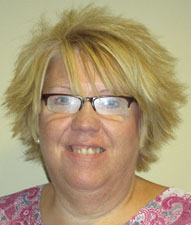 Deb Maguire, Administrator of High Plains Alzheimer’s Special Care Center, speaks to the enigmatic nature of Alzheimer’s disease. “Alzheimer’s disease has emerged as one of the great mysteries in modern day medicine, with a growing number of clues but still no answers as to its cause. Researchers have come up with a number of theories about the cause of this disease but so far the mystery remains unsolved. The onset of Alzheimer’s disease is slow and gradual. In the early stages you may observe mild personality changes, memory loss, difficulty finishing tasks and getting lost. The person recognizes these losses and feels fear and frustration. As the disease progresses to middle stage dementia the person’s ability to perform tasks and remain focused is diminished. Impaired judgment and an inability to reason are now present making care giving extremely difficult as well as posing serious safety issues. Ask any caregiver how caring for a loved one with dementia affects all aspects of one’s life and you’ll be surprised to find out just how drastic the changes in day to day living can be. Having a support system is essential. At High Plains, we reach out to those families and support teams in order to work together for a plan which is beneficial for all. There may come a time when your loved one’s safety and health requires placement; other than home. Until that time, let us help you by assisting with the support you need to continue providing care. She adds, “Here at High Plains we understand the challenges families face in placing a loved one in someone else’s care. We want to join you in providing care with a success-oriented dementia environment, free of most expectations, while you reclaim your role as family. In other words we take on the daily tasks freeing you up to spend quality time with your loved one and take care of you. Role reversal is one of the most difficult experiences associated with this disease. Our communications with you are frequent and ongoing with any changes as well as routine observations. We may call you just to let you know how you’re loved one enjoyed their day! We also know that past routines provide comfort. Our goal is to incorporate their past preferences and past routines into their day as well as honoring the person and their life accomplishments. For example, Joan’s routine has always included a typical bedtime of 9:30pm where she went to bed reading scripture each night at that time. Her bedtime to us looks like this: Around 9:30pm her shades are drawn, bed linens pulled down, nightgown is placed on the bed, bed side lamp is turned on and her Bible is open. Engaging residents in preferences and routines throughout their day provides comfort and a sense of belonging. We recognize we are caring for the whole person; physically, socially, emotionally and spiritually focusing on remaining abilities while minimizing the disability.”
Deb Maguire, Administrator of High Plains Alzheimer’s Special Care Center, speaks to the enigmatic nature of Alzheimer’s disease. “Alzheimer’s disease has emerged as one of the great mysteries in modern day medicine, with a growing number of clues but still no answers as to its cause. Researchers have come up with a number of theories about the cause of this disease but so far the mystery remains unsolved. The onset of Alzheimer’s disease is slow and gradual. In the early stages you may observe mild personality changes, memory loss, difficulty finishing tasks and getting lost. The person recognizes these losses and feels fear and frustration. As the disease progresses to middle stage dementia the person’s ability to perform tasks and remain focused is diminished. Impaired judgment and an inability to reason are now present making care giving extremely difficult as well as posing serious safety issues. Ask any caregiver how caring for a loved one with dementia affects all aspects of one’s life and you’ll be surprised to find out just how drastic the changes in day to day living can be. Having a support system is essential. At High Plains, we reach out to those families and support teams in order to work together for a plan which is beneficial for all. There may come a time when your loved one’s safety and health requires placement; other than home. Until that time, let us help you by assisting with the support you need to continue providing care. She adds, “Here at High Plains we understand the challenges families face in placing a loved one in someone else’s care. We want to join you in providing care with a success-oriented dementia environment, free of most expectations, while you reclaim your role as family. In other words we take on the daily tasks freeing you up to spend quality time with your loved one and take care of you. Role reversal is one of the most difficult experiences associated with this disease. Our communications with you are frequent and ongoing with any changes as well as routine observations. We may call you just to let you know how you’re loved one enjoyed their day! We also know that past routines provide comfort. Our goal is to incorporate their past preferences and past routines into their day as well as honoring the person and their life accomplishments. For example, Joan’s routine has always included a typical bedtime of 9:30pm where she went to bed reading scripture each night at that time. Her bedtime to us looks like this: Around 9:30pm her shades are drawn, bed linens pulled down, nightgown is placed on the bed, bed side lamp is turned on and her Bible is open. Engaging residents in preferences and routines throughout their day provides comfort and a sense of belonging. We recognize we are caring for the whole person; physically, socially, emotionally and spiritually focusing on remaining abilities while minimizing the disability.”
The more you can plan with your loved ones before they lose their memory capabilities, the better off everyone will be in the long run. Kathy Nannen of The Arbors Memory Care Community, owned and operated by Legacy Retirement Communities, agrees that routine is crucial and if home care is not possible or if a move is necessary, new surroundings should be introduced and as soon as possible. She states, “When someone is diagnosed with memory loss issues and can no longer live in their home, moving can be very confusing and can cause distress. Try to make as few moves as possible. Going directly to memory care may seem difficult for the family to consider, but it will benefit the person with the disease by possibly allowing them to adjust to their surroundings in order to feel more secure. Frequent moves may cause confusion, exit seeking behavior and decline. Dementia screening can also be very helpful. Knowing what type of dementia your loved one has will help their physician know what treatment will work best for their symptoms. It is crucial to talk with your family openly about end of life care and/or have a living will in place stating your loved one’s wishes on resuscitation and life support. If you do not have Advanced Directives in place or a Power of Attorney delegated for healthcare and finance before your loved ones are diagnosed with dementia or declared incompetent, you will have to attain guardianship or the court will order someone as guardian on your behalf.” The Legacy Retirement Community offers “The Arbors Memory Care Community,” a fully secured, state of the art memory care community with elegant surroundings and compassionate care. The Arbor’s residents are supported and sustained so they may experience joy, safety, comfort and a meaningful life. Nannen explains, “Our approach to care giving is based on ‘The Best Friends Approach to Alzheimer’s Care’ developed by Virginia Bell, M.S.W. & David Troxell, M.P.H. Staff members get to know each person’s life story, preferences and interests in order to provide personalized care for each individual. Understanding the person and the disease process helps us to have compassion and patience, to give validation to concerns, and to support them through each stage of their disease. This is essential to preserving their dignity and providing comfort to them as well as to their families. The Arbors Memory care offers full or part time day services Monday through Friday. Guests can spend the day and enjoy a full program of memory support activities, entertainment and outings. Meals and snacks are included. Staying busy during the day can enhance quality of life and promote better sleeping patterns, which will improve overall mental wellbeing. The Legacy Retirement Communities also offers support groups at two of their communities. These groups provide support concerning a loved one’s care at all stages of dementia. Having a support system is an important part of maintaining the caregiver and family’s health and wellbeing. We help people care for their loved ones still at home, recognize when a memory care community may be needed, and give them resources for health care services, financial services, medical equipment, and care giving tips as well as tips on how to take care of themselves.”
 Lancaster Rehabilitation Center also offers clinical services specializing in memory care, in addition to their full range of rehabilitation services and care options. Beth Steele of Lancaster Rehabilitation Center states, “We understand that placing a loved one in another’s care is a decision that requires thoughtful consideration that includes love, respect, and concern for the individual. We are a 24-hour skilled nursing facility where care, comfort and compassion are all critical to the services we provide. In addition to spacious private or semi-private rooms in our newly remodeled facility, we also provide a beautiful outdoor gazebo with a secured courtyard to make our residents as comfortable in their surroundings as possible. At Lancaster Rehabilitation Center, we are dedicated to enhancing the quality of life for your loved ones.”
Lancaster Rehabilitation Center also offers clinical services specializing in memory care, in addition to their full range of rehabilitation services and care options. Beth Steele of Lancaster Rehabilitation Center states, “We understand that placing a loved one in another’s care is a decision that requires thoughtful consideration that includes love, respect, and concern for the individual. We are a 24-hour skilled nursing facility where care, comfort and compassion are all critical to the services we provide. In addition to spacious private or semi-private rooms in our newly remodeled facility, we also provide a beautiful outdoor gazebo with a secured courtyard to make our residents as comfortable in their surroundings as possible. At Lancaster Rehabilitation Center, we are dedicated to enhancing the quality of life for your loved ones.”
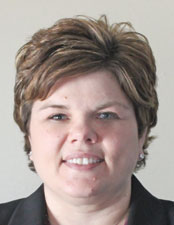 The Waterford at Wilderness Hills focuses on offering memory care services in a home-like setting. Pam Carlson of The Waterford notes that since they can only accommodate up to 16 residents, their size is a benefit to these residents as they receive valuable personalized care and attention. She adds, “At The Waterford, we feel it is equally important to assist families during these transitional times. Many time families feel that they ‘should’ be able to care for their loved one without assistance. The reality is caring for a person with dementia is a 24/7 job and it cannot be accomplished by just one person. We are happy to assist with day services, respite or long term care. Once the family sees that their loved one is in good hands and cared for as they wish, they can recharge themselves and just enjoy their time with their loved one without being the ‘caregiver’. The greatest compliment we receive is when families come to visit their loved one and are at ease and feel like they are a part of our community. You are not alone or expected to be able to do this on your own. Seek support from local resources such as support groups, home care agencies, assisted livings and long term care. Utilizing assistance is not a weakness it is a gift you can give your loved one. Most importantly, take care of yourself and don’t forget the importance of your health. You can’t help your loved one if your body is stressed and it affects your health. We welcome visitors anytime at The Waterford, and we are happy to answer any questions or concerns that you may have.”
The Waterford at Wilderness Hills focuses on offering memory care services in a home-like setting. Pam Carlson of The Waterford notes that since they can only accommodate up to 16 residents, their size is a benefit to these residents as they receive valuable personalized care and attention. She adds, “At The Waterford, we feel it is equally important to assist families during these transitional times. Many time families feel that they ‘should’ be able to care for their loved one without assistance. The reality is caring for a person with dementia is a 24/7 job and it cannot be accomplished by just one person. We are happy to assist with day services, respite or long term care. Once the family sees that their loved one is in good hands and cared for as they wish, they can recharge themselves and just enjoy their time with their loved one without being the ‘caregiver’. The greatest compliment we receive is when families come to visit their loved one and are at ease and feel like they are a part of our community. You are not alone or expected to be able to do this on your own. Seek support from local resources such as support groups, home care agencies, assisted livings and long term care. Utilizing assistance is not a weakness it is a gift you can give your loved one. Most importantly, take care of yourself and don’t forget the importance of your health. You can’t help your loved one if your body is stressed and it affects your health. We welcome visitors anytime at The Waterford, and we are happy to answer any questions or concerns that you may have.”

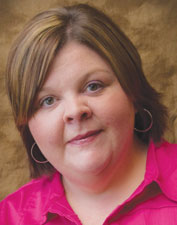 Depending on the level of memory loss your loved one is experiencing, there are certain home care or day stay options that may work better to provide the primary caregiver, and often times family member, a break and some time for themselves. Laura Thelen of Country House Residences says, “It is important to do your research of facilities ahead of time rather than in a crisis situation so that you know what all of the options are in your community. In addition to our long term care options, we offer our day stay program where you can bring your loved one for a few hours or all day and they can participate in the activities, have a home cooked meal, and then go home at night allowing people to stay in their home longer if that is an option for their family. We also offer respite care which allows people to bring their loved one for a night or two or a week so that they can have a break from the daily caregiving. Having a loved one come for day stays not only gives the caregiver a break but it allows the individual with the disease a chance to interact with others and do things they enjoy in a safe environment. Country House always provides a very high ratio of experienced caring staff made up of CNA’s, Medication Aides, and nurses. We also offer an outstanding activity program that allows individuals with memory care needs to still enjoy the things that they once enjoyed from going out to the local nursery to buy plants, to baking a homemade pie, to playing a game of golf. Additionally, we have a group that meets monthly to support each other in the challenges that everyone has when it comes to this disease.”
Depending on the level of memory loss your loved one is experiencing, there are certain home care or day stay options that may work better to provide the primary caregiver, and often times family member, a break and some time for themselves. Laura Thelen of Country House Residences says, “It is important to do your research of facilities ahead of time rather than in a crisis situation so that you know what all of the options are in your community. In addition to our long term care options, we offer our day stay program where you can bring your loved one for a few hours or all day and they can participate in the activities, have a home cooked meal, and then go home at night allowing people to stay in their home longer if that is an option for their family. We also offer respite care which allows people to bring their loved one for a night or two or a week so that they can have a break from the daily caregiving. Having a loved one come for day stays not only gives the caregiver a break but it allows the individual with the disease a chance to interact with others and do things they enjoy in a safe environment. Country House always provides a very high ratio of experienced caring staff made up of CNA’s, Medication Aides, and nurses. We also offer an outstanding activity program that allows individuals with memory care needs to still enjoy the things that they once enjoyed from going out to the local nursery to buy plants, to baking a homemade pie, to playing a game of golf. Additionally, we have a group that meets monthly to support each other in the challenges that everyone has when it comes to this disease.”
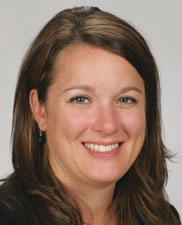 Aimee Middleton of Southlake Village stresses the importance of knowing the difference between assisted living memory care and skilled memory support care. She says, “Both levels offer wonderful care, support and services, but each individuals memory needs requires a different care level. Memory support needs range in spectrum from mild to severe. Southlake recognizes the need for individualization at all levels of memory care. Southlake Village Rehabilitation and Care Center offers a secure Skilled Memory Support Household that offers 24 hour a day professional nursing care as well as a specific life enrichment program tailored to those with memory support needs. Southlake is very successful in helping those who have memory needs rehabilitate following a surgery or injury. Since our whole community is Medicare licensed we can assist those with wandering behaviors or other memory support concerns rehab either on our rehabilitation or memory support households dependent on the individuals care needs. We always recommend touring all prospective facilities and asking a lot of questions regarding the acuity of care offered at each individual community. We also recommend that a family member take the time to listen and observe the individuals needs and seek help from community providers. It is important to take into consideration personal preferences and needs when touring and selecting a memory support community. We feel that this will help families rest assured that their loved one was part of the decision and they made the best decision for their loved one.” She adds, “Having a grandparent who has Alzheimer’s disease I understand the importance of having a plan in place before your loved one loses their memory capabilities. We have found very helpful is having the individual with memory support needs be a part of the decision making process early on. Recently, a lady with early onset dementia stayed at Southlake Village for some respite care while her family was away. After, her family returned she let them know that she knew that someday they would no longer be able to care for her and when that day came she would like to return to Southlake Village. This offers an opportunity for open communication regarding personal preferences regarding care. These early conversation will enhance a person’s quality of life. At Southlake Village, we allow families to connect and enjoy their loved ones outside of the caregiver role. Services provided at Southlake Village exceed industry standards; this is evidenced by offering the services of both a Masters level Social Worker and Recreation Therapist. We also provide our staff with the opportunity to obtain specialized dementia training for free. Opportunities for education and a specific memory support family council are provided regularly and as needed.”
Aimee Middleton of Southlake Village stresses the importance of knowing the difference between assisted living memory care and skilled memory support care. She says, “Both levels offer wonderful care, support and services, but each individuals memory needs requires a different care level. Memory support needs range in spectrum from mild to severe. Southlake recognizes the need for individualization at all levels of memory care. Southlake Village Rehabilitation and Care Center offers a secure Skilled Memory Support Household that offers 24 hour a day professional nursing care as well as a specific life enrichment program tailored to those with memory support needs. Southlake is very successful in helping those who have memory needs rehabilitate following a surgery or injury. Since our whole community is Medicare licensed we can assist those with wandering behaviors or other memory support concerns rehab either on our rehabilitation or memory support households dependent on the individuals care needs. We always recommend touring all prospective facilities and asking a lot of questions regarding the acuity of care offered at each individual community. We also recommend that a family member take the time to listen and observe the individuals needs and seek help from community providers. It is important to take into consideration personal preferences and needs when touring and selecting a memory support community. We feel that this will help families rest assured that their loved one was part of the decision and they made the best decision for their loved one.” She adds, “Having a grandparent who has Alzheimer’s disease I understand the importance of having a plan in place before your loved one loses their memory capabilities. We have found very helpful is having the individual with memory support needs be a part of the decision making process early on. Recently, a lady with early onset dementia stayed at Southlake Village for some respite care while her family was away. After, her family returned she let them know that she knew that someday they would no longer be able to care for her and when that day came she would like to return to Southlake Village. This offers an opportunity for open communication regarding personal preferences regarding care. These early conversation will enhance a person’s quality of life. At Southlake Village, we allow families to connect and enjoy their loved ones outside of the caregiver role. Services provided at Southlake Village exceed industry standards; this is evidenced by offering the services of both a Masters level Social Worker and Recreation Therapist. We also provide our staff with the opportunity to obtain specialized dementia training for free. Opportunities for education and a specific memory support family council are provided regularly and as needed.”
Impact of Dementia and Alzheimer’s Disease on Caregivers
• In 2012, 15.4 million family and friends provided 17.5 billion hours of unpaid care to those with Alzheimer’s and other dementias — care valued at $216.4 billion, which is more than eight times the total sales of McDonald’s in 2011. Eighty percent of care provided in the community is provided by unpaid caregivers.
• Nearly 15 percent of caregivers are long-distance caregivers, living an hour or more away from their loved ones. Out-of-pocket expenses for long-distance caregivers are nearly twice as much as local caregivers.
• More than 60 percent of Alzheimer’s and dementia caregivers rate the emotional stress of caregiving as high or very high; more than one-third report symptoms of depression. Due to the physical and emotional toll of caregiving, Alzheimer’s and dementia caregivers had $9.1 billion in additional health care costs of their own in 2012.
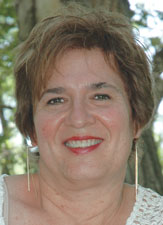 Jackie J. Bates, RN, CHPN, and author of the Conversations Handbook and Journal, emphasizes that connecting people with people is one of the most important steps in caring for families with a dementia diagnosis. She says, “We all know it is important to hear concern and direction from your doctor or health care worker as they share a diagnosis. What is profoundly impactful, though, is gaining advice, insight and encouragement about living in the midst of dementia when it comes from someone else who has ‘been there and done that.’ I highly recommend regular involvement with the Alzheimer’s Association support groups, the local memory support groups where your loved one may be living, and the willingness to allow others to help you care for your loved ones. The coordination of a team is how you will survive and continue to live. The subtitle of ‘Conversations’ is this; ‘Living through the Process of Dying.’ Dementia will progress toward end of life. Accepting help and utilizing a team is where you as the spouse or child will live, where you will breathe easier, and experience more about life than you could ever imagine. Without this team, I can guarantee you the strain of this disease will be devastating.” Bates adds, “The effects of dementia change the course of every individual involved with the disease. This disease is becoming more prevalent, whether you are simply aging, have a genetic connection or even if you are a healthy athlete. The spectrum is wide, rising in frequency and vividly noticeable in all communities across the world. Dementia is not a respecter of age or race. In my business I get to be a neutral advocate for the client and their family by providing private consultations, called ‘Living Room Discussions.’ This is a time when you get to ask your questions, and voice personal goals and concerns without having to make a final decision. We just talk about your story, personalize your needs and learn about resources (there are many resources) as you face this devastating disease. We have conversations not only about the potential treatment of the disease, but also consider what you can prepare for in the future as the disease progresses. I love giving people a platform to voice their thoughts in the privacy of their own homes. Education, which I provide during my speaking engagements, is another way to help people open up. When I meet with groups, they get to voice their comments and questions and I tailor the presentation to the audience. Educating families and care givers about the progression of dementia can provide clues as to their next step in the decision process. Even though the decisions can be remarkably difficult, there is support and practical help available. In June of 2012 I published a handbook titled ‘Conversations’ as a tool for helping face health conditions such as dementia that do not have a cure. This handbook will help you talk about decisions that need to be made and give basic advice in treating symptoms such as anxiety or changes in a person’s mobility. Also, there will be a time when the disease progression meets the criteria for hospice services and I strongly urge everyone to consider hospice care and support. Although not everyone qualifies until certain stages of dementia have been identified, a hospice team can bring a level of support and wisdom that is profoundly helpful.”
Jackie J. Bates, RN, CHPN, and author of the Conversations Handbook and Journal, emphasizes that connecting people with people is one of the most important steps in caring for families with a dementia diagnosis. She says, “We all know it is important to hear concern and direction from your doctor or health care worker as they share a diagnosis. What is profoundly impactful, though, is gaining advice, insight and encouragement about living in the midst of dementia when it comes from someone else who has ‘been there and done that.’ I highly recommend regular involvement with the Alzheimer’s Association support groups, the local memory support groups where your loved one may be living, and the willingness to allow others to help you care for your loved ones. The coordination of a team is how you will survive and continue to live. The subtitle of ‘Conversations’ is this; ‘Living through the Process of Dying.’ Dementia will progress toward end of life. Accepting help and utilizing a team is where you as the spouse or child will live, where you will breathe easier, and experience more about life than you could ever imagine. Without this team, I can guarantee you the strain of this disease will be devastating.” Bates adds, “The effects of dementia change the course of every individual involved with the disease. This disease is becoming more prevalent, whether you are simply aging, have a genetic connection or even if you are a healthy athlete. The spectrum is wide, rising in frequency and vividly noticeable in all communities across the world. Dementia is not a respecter of age or race. In my business I get to be a neutral advocate for the client and their family by providing private consultations, called ‘Living Room Discussions.’ This is a time when you get to ask your questions, and voice personal goals and concerns without having to make a final decision. We just talk about your story, personalize your needs and learn about resources (there are many resources) as you face this devastating disease. We have conversations not only about the potential treatment of the disease, but also consider what you can prepare for in the future as the disease progresses. I love giving people a platform to voice their thoughts in the privacy of their own homes. Education, which I provide during my speaking engagements, is another way to help people open up. When I meet with groups, they get to voice their comments and questions and I tailor the presentation to the audience. Educating families and care givers about the progression of dementia can provide clues as to their next step in the decision process. Even though the decisions can be remarkably difficult, there is support and practical help available. In June of 2012 I published a handbook titled ‘Conversations’ as a tool for helping face health conditions such as dementia that do not have a cure. This handbook will help you talk about decisions that need to be made and give basic advice in treating symptoms such as anxiety or changes in a person’s mobility. Also, there will be a time when the disease progression meets the criteria for hospice services and I strongly urge everyone to consider hospice care and support. Although not everyone qualifies until certain stages of dementia have been identified, a hospice team can bring a level of support and wisdom that is profoundly helpful.”
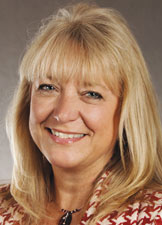 Rhonda Saunders of Hospice Community Care explains, “Think of dementia in terms of flowers. There are many types of flowers—roses, daisies, lilies—just as there are many types of dementia. In fact, there are over 70 types of dementia. Hospice Community Care provides dignified end-of-life care and quality services that allows our patients and families the hospice option to live life richly, deeply and meaningfully as long as it lasts. This mission also involves reaching out to families and their loved ones with dementia. We offer a Dementia Program that provides support, education, in home and out of home care information, and when the time comes, hospice. Our compassionate staff is composed of dementia trained professionals, many of which are Certified Dementia Practitioners. They understand the special needs involved in caring for a patient with dementia. Gayleen Bradley, Hospice Community Care’s Director of Community Relations, has several certifications in dementia care and education and has many years of training and hands-on experience. She is our go-to person for guidance and tips on how to ‘be ahead of dementia related behaviors and not behind them’. It’s important to note that behaviors are how those with dementia communicate an unmet need. As the disease progresses, the ability to express needs becomes very difficult or non-existent. Whether someone is receiving hospice care from us or not, Gayleen is willing to share her expertise and knowledge with individuals, families and care facilities. This is another aspect of our Hospice Community Care services. We offer one on one or group education on a wide spectrum of topics, including but not limited to; understanding dementia and how to deal with dementia related issues. It’s important to remember that when you meet someone with dementia, you have met only one person with dementia. Due to the many types of dementia and how they affect a person, the specifics will determine what options are best for how that individual receives treatment and care. It’s important to know there are techniques that can be used to get in front of behaviors instead of having to deal with them after they have happened. We encourage a team approach to care, which should also include visiting with a physician who specializes in neurological disorders to find out what is the best course of action for you or your loved one.” She adds, “Care options for your loved one can range from keeping them at home and taking total charge of their care to placing them in a secured dementia home or facility. Many factors can and will dictate decisions and options, finances being one of the biggest. Moving a loved one to a specialized home can run into a lot of expense, as can having trained home care providers come into the home. Asking and receiving help from family and friends also has it pros and cons and sometimes this just is not an option. Know what resources you currently have and what might be available if finances are limited. Inform yourself, look into different housing options, and have conversations with family, friends, your healthcare providers, support group and other experts. There is no one simple answer. Look at the best fit for right now and know that the needs of today may change with tomorrow, but remember there are caring professionals who are willing to assist you on this journey.”
Rhonda Saunders of Hospice Community Care explains, “Think of dementia in terms of flowers. There are many types of flowers—roses, daisies, lilies—just as there are many types of dementia. In fact, there are over 70 types of dementia. Hospice Community Care provides dignified end-of-life care and quality services that allows our patients and families the hospice option to live life richly, deeply and meaningfully as long as it lasts. This mission also involves reaching out to families and their loved ones with dementia. We offer a Dementia Program that provides support, education, in home and out of home care information, and when the time comes, hospice. Our compassionate staff is composed of dementia trained professionals, many of which are Certified Dementia Practitioners. They understand the special needs involved in caring for a patient with dementia. Gayleen Bradley, Hospice Community Care’s Director of Community Relations, has several certifications in dementia care and education and has many years of training and hands-on experience. She is our go-to person for guidance and tips on how to ‘be ahead of dementia related behaviors and not behind them’. It’s important to note that behaviors are how those with dementia communicate an unmet need. As the disease progresses, the ability to express needs becomes very difficult or non-existent. Whether someone is receiving hospice care from us or not, Gayleen is willing to share her expertise and knowledge with individuals, families and care facilities. This is another aspect of our Hospice Community Care services. We offer one on one or group education on a wide spectrum of topics, including but not limited to; understanding dementia and how to deal with dementia related issues. It’s important to remember that when you meet someone with dementia, you have met only one person with dementia. Due to the many types of dementia and how they affect a person, the specifics will determine what options are best for how that individual receives treatment and care. It’s important to know there are techniques that can be used to get in front of behaviors instead of having to deal with them after they have happened. We encourage a team approach to care, which should also include visiting with a physician who specializes in neurological disorders to find out what is the best course of action for you or your loved one.” She adds, “Care options for your loved one can range from keeping them at home and taking total charge of their care to placing them in a secured dementia home or facility. Many factors can and will dictate decisions and options, finances being one of the biggest. Moving a loved one to a specialized home can run into a lot of expense, as can having trained home care providers come into the home. Asking and receiving help from family and friends also has it pros and cons and sometimes this just is not an option. Know what resources you currently have and what might be available if finances are limited. Inform yourself, look into different housing options, and have conversations with family, friends, your healthcare providers, support group and other experts. There is no one simple answer. Look at the best fit for right now and know that the needs of today may change with tomorrow, but remember there are caring professionals who are willing to assist you on this journey.”
 There are also studies that suggest that seniors with hearing loss are more likely to develop dementia over time than those who retain their hearing. The findings, from John Hopkins and the National Institute on Aging, suggest this could lead to new ways to combat dementia; which affects millions of people worldwide and carries heavy social burdens. Nebraska Hearing Center Audiologist, Leslie Frank explains that although the link between the two conditions is unknown, researchers suggest that a common pathology may underlie both or that the strain of decoding sounds over the years may overwhelm the brains of people with hearing loss, leaving them more vulnerable to dementia. They also speculate that hearing loss could lead to dementia by making individuals more socially isolated, a known risk factor for dementia and Alzheimer’s. Whatever the cause, the scientists report their finding may offer a starting point for interventions – even as simple as hearing aids – that could delay or prevent dementia by improving patients’ hearing. “Hearing loss is a slow process and sometimes ignored”, Leslie says. “Even if people feel they aren’t affected, this study shows that it may be a more serious problem”.
There are also studies that suggest that seniors with hearing loss are more likely to develop dementia over time than those who retain their hearing. The findings, from John Hopkins and the National Institute on Aging, suggest this could lead to new ways to combat dementia; which affects millions of people worldwide and carries heavy social burdens. Nebraska Hearing Center Audiologist, Leslie Frank explains that although the link between the two conditions is unknown, researchers suggest that a common pathology may underlie both or that the strain of decoding sounds over the years may overwhelm the brains of people with hearing loss, leaving them more vulnerable to dementia. They also speculate that hearing loss could lead to dementia by making individuals more socially isolated, a known risk factor for dementia and Alzheimer’s. Whatever the cause, the scientists report their finding may offer a starting point for interventions – even as simple as hearing aids – that could delay or prevent dementia by improving patients’ hearing. “Hearing loss is a slow process and sometimes ignored”, Leslie says. “Even if people feel they aren’t affected, this study shows that it may be a more serious problem”.
Other studies have shown related findings, including several involving Brandeis University Professor of Neuroscience, Dr. Arthur Wingfield. For many years, Wingfield has been studying cognitive aging and the relationship between memory and hearing acuity. Wingfield, along with colleagues at the University of Pennsylvania and Washington University in St. Louis, used MRI to look at the effect that hearing loss has on both brain activity and structure. Their study found that people with poorer hearing had less gray matter in the auditory cortex, a region of the brain that is necessary to support speech comprehension. Wingfield believes that the participants’ hearing loss had a role. He and his co-investigators hypothesize that when the sensory stimulation is reduced due to hearing loss, corresponding areas of the brain reorganize their activity as a result.
Why is it important to have an understanding of how our hearing is related to memory issues?
According to the John Hopkins study, people suffering with severe hearing loss, were five times more likely to develop dementia than those with normal hearing.
Some of the warning signs to look for are:
• You hear loud enough, but can’t understand conversations
• You overuse the word “what” • You turn to the TV too loud for others
• You can’t understand conversation in a noisy environment, like a restaurant • You have ringing in your ears
“I urge people to pay close attention to their hearing and to have it checked annually just like any other annual checkup,” Leslie says. “It is important to establish a baseline and to annually monitor your hearing. At our convenient mid-town location at 5625 O Street, Nebraska Hearing Center offers free hearing tests so it is simple to get your baseline established and follow up with annual checkups”. The ability to communicate with the help of hearing aids can help enhance quality of life for individuals with Alzheimer’s and their caregivers. While the reason requires further investigation, the increasingly evident link between hearing loss and dementia elevates the urgency of diagnosing and treating hearing loss as soon as possible.
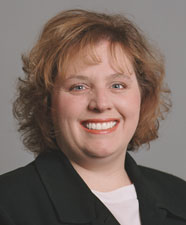
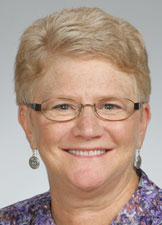 Regarding planning with and for your loved ones, Laurie McAdams, Family Service Representative at Butherus, Maser & Love Funeral Home, adds, “How often do we say, ‘Oh I’ll get that done’ and then it’s six months later and we realize that we haven’t even begun this or that. I had a memory book that I was always going to work on with my mother. I found it the other day and we’d answered two of the one hundred questions. By the time we got back to it she’d had a series of mini strokes and couldn’t remember how to talk to me, let alone know what the answers were. Making funeral arrangements are just the same. We need to get what WE want written down and have a plan which our family knows is in place. It is also very important to have legal documents in place to spell out what we want while we are capable of making decisions. There is a reason that wills talk about a person being of sound mind. Having someone you trust as Power of Attorney (ends at death), Medical Power of Attorney and also serving as Personal Representative will insure your wishes are followed. Again, if what WE want is important to us we need to have it written down. There have been many times that families begin to argue over what to do after Mom or Dad has died. People will say, ‘Oh my kids wouldn’t argue’ but when it comes to making these arrangements after death occurs, different family members bring their own issues to the table. Someone might feel guilty so they want to overspend to assuage that guilt, while another family member who is “frugal” wants very basic services. . Making funeral arrangements while you or your loved one is capable will prevent overspending, lock in today’s prices and give the family peace of mind that your wishes are being followed in spite of your abilities when death is near.”
Regarding planning with and for your loved ones, Laurie McAdams, Family Service Representative at Butherus, Maser & Love Funeral Home, adds, “How often do we say, ‘Oh I’ll get that done’ and then it’s six months later and we realize that we haven’t even begun this or that. I had a memory book that I was always going to work on with my mother. I found it the other day and we’d answered two of the one hundred questions. By the time we got back to it she’d had a series of mini strokes and couldn’t remember how to talk to me, let alone know what the answers were. Making funeral arrangements are just the same. We need to get what WE want written down and have a plan which our family knows is in place. It is also very important to have legal documents in place to spell out what we want while we are capable of making decisions. There is a reason that wills talk about a person being of sound mind. Having someone you trust as Power of Attorney (ends at death), Medical Power of Attorney and also serving as Personal Representative will insure your wishes are followed. Again, if what WE want is important to us we need to have it written down. There have been many times that families begin to argue over what to do after Mom or Dad has died. People will say, ‘Oh my kids wouldn’t argue’ but when it comes to making these arrangements after death occurs, different family members bring their own issues to the table. Someone might feel guilty so they want to overspend to assuage that guilt, while another family member who is “frugal” wants very basic services. . Making funeral arrangements while you or your loved one is capable will prevent overspending, lock in today’s prices and give the family peace of mind that your wishes are being followed in spite of your abilities when death is near.”

Among all of the other resources we have mentioned, The Alzheimer’s Organization is also an excellent source of information. Their toll free helpline, (800) 272-3900, is available 24/7 and it is always staffed by people who can answer any question, big or small, or get you in touch with local resources to help as well as providing respite grants for caregivers. The Alzheimer’s Organization website, alz.org, also offers a wealth of amazing resources. There are plenty of community resources that offer assistance specifically for memory-related issues. Not just for those with Alzheimer’s or dementia; but family, friends and caregivers as well. Aging is unavoidable and unfortunately we all will not age the same way, but knowing that your loved ones wishes are being honored and they are receiving the best care possible certainly eases the difficulty of accepting these changes. Building a care team or developing your own network of helpers is crucial to meeting the challenges ahead with strength and confidence.

